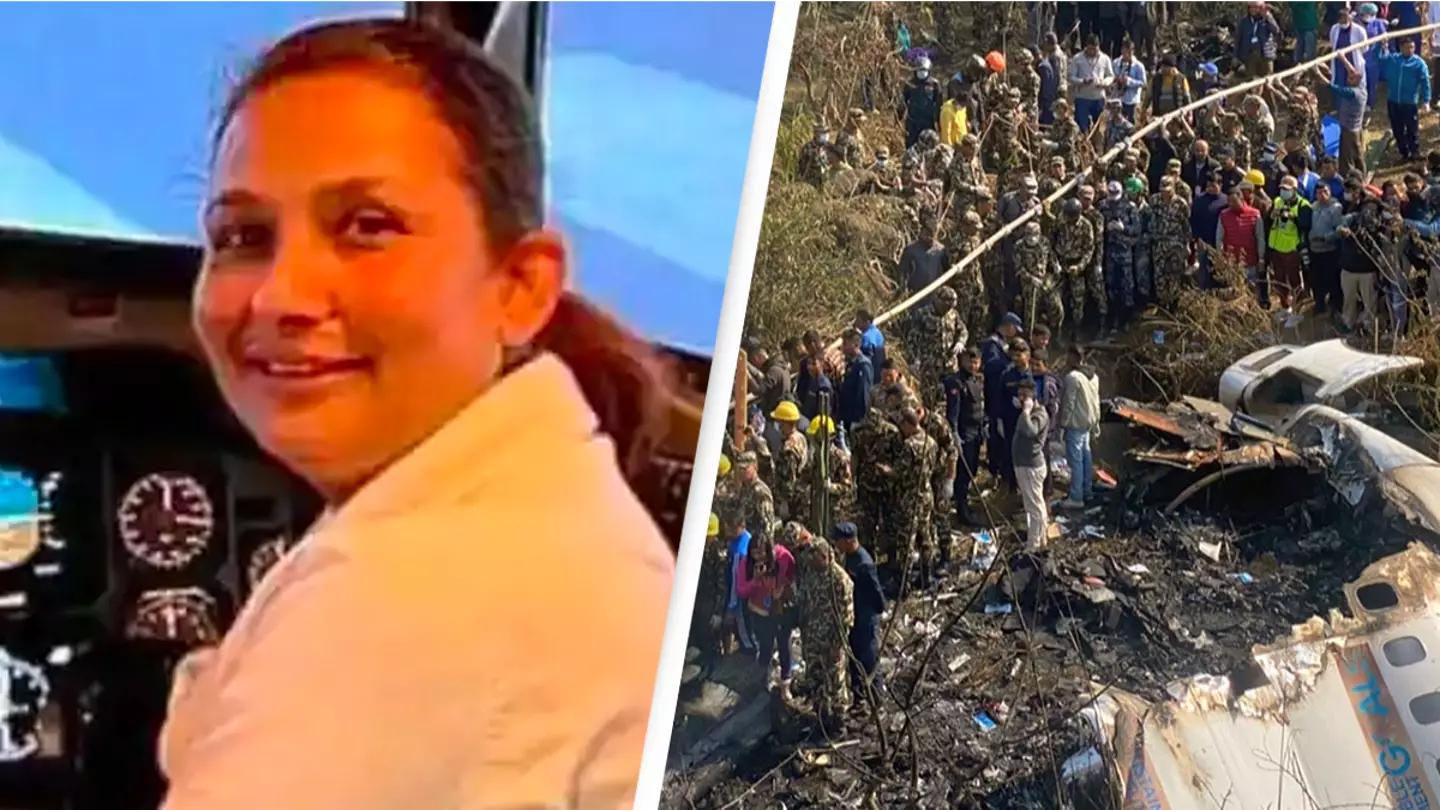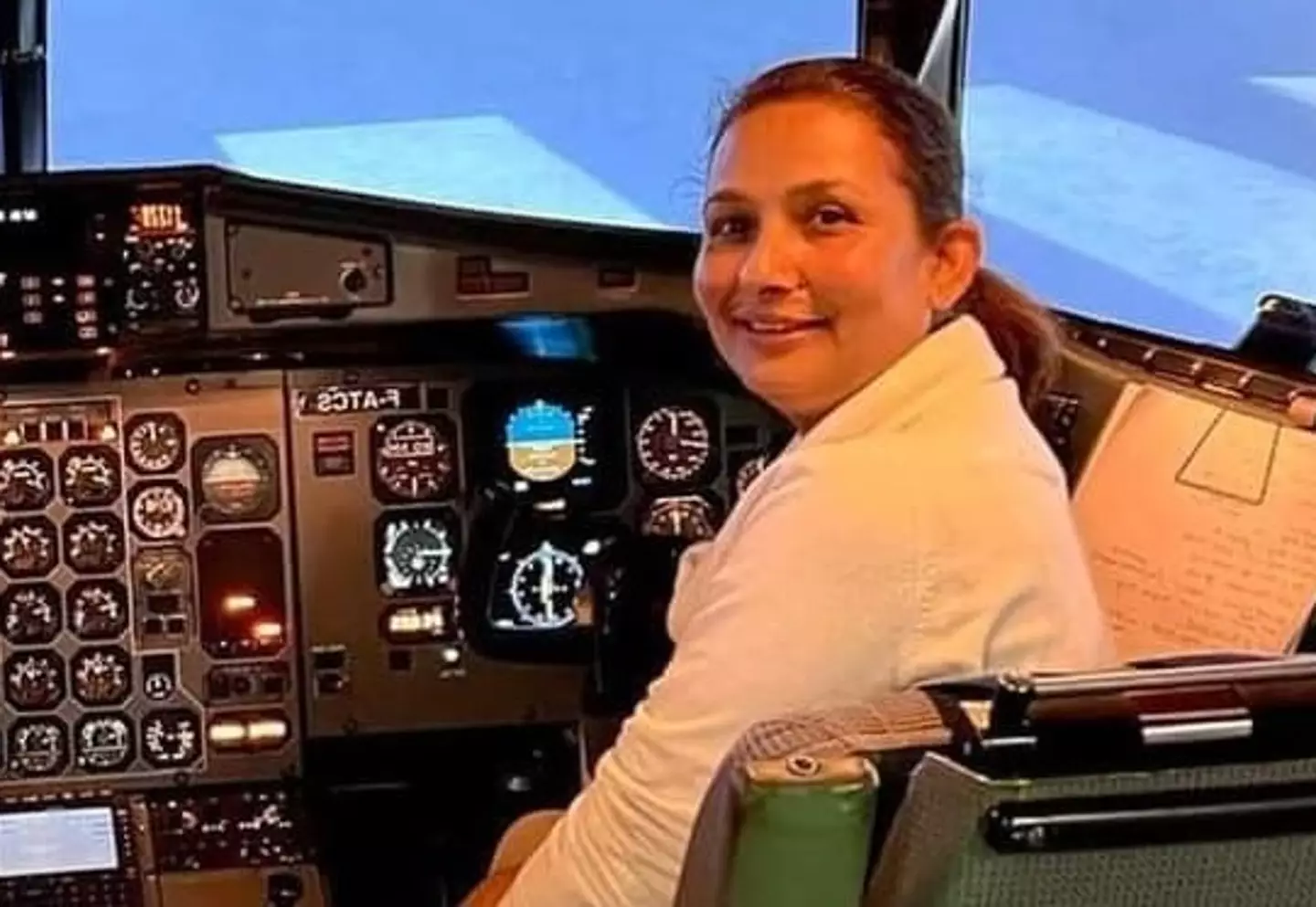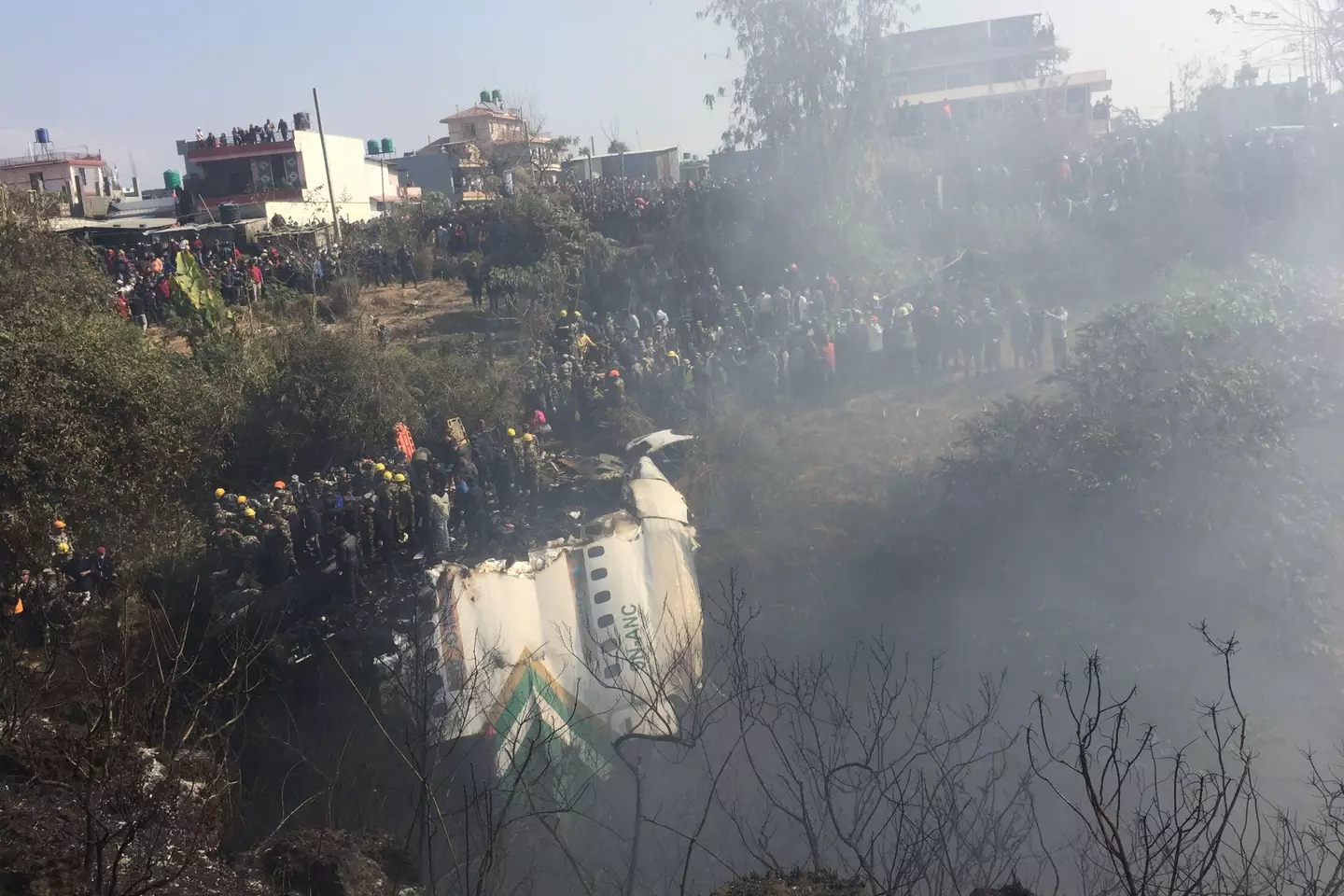
The co-pilot on board the Yeti Airlines flight which crashed in Nepal is believed to have died 16 years after her husband perished in similar circumstances.
The flight from the Nepalese capital of Kathmandu to the nation's second largest city Pokhara went down at around 11am local time on 15 January with 72 people on board.
At least 68 have been confirmed dead in the tragic crash, with investigators working to determine further details about the missing and dead, and how the plane crashed in the first place.
It is Nepal's deadliest plane crash for three decades following a disaster in 1992 when a Pakistan International Airlines flight crashed into a hill as it tried to land in Kathmandu, killing all 167 people on board.
Advert
A national day of mourning has been declared in Nepal as rescue workers continue to try and locate the remaining people on board, with no survivors from the crash yet found.

Among those believed to have died in the disaster is co-pilot Anju Khatiwada, who has not yet been identified.
A statement from Yeti Airlines explained that her husband was a pilot who died in a crash involving one of their planes roughly 16 years ago and that she learned how to become a pilot after his death.
They said: "Her husband, Dipak Pokhrel, died in 2006 in a crash of a Twin Otter plane of Yeti Airlines in Jumla. She got her pilot training with the money she got from the insurance after her husband's death."
She had previously flown the route between Kathmandu and Pokhara, and was in the cockpit with Kemal KC, the flight's captain.
His body is one of those which has been recovered and identified by rescue efforts.

People on the ground were able to spot the plane in the final moments before it crashed, with footage showing it teetering violently to one side as it plummeted earthward.
Eyewitnesses to the crash say half the plane ended up shattered against a nearby hillside while the other half 'fell into the gorge of the Seti River'.
Locals said they saw the plane 'trembling, moving left and right' before taking a sudden nosedive into the gorge.
Others who have observed footage of the plane's final moments believe the pilot saved many lives by being able to crash the plane somewhere other than the Nepalese town they were flying over.
The plane's black box and cockpit recording were intact, with investigators hoping that the discovery of the devices will be able to shed some light on exactly what happened in the moments leading up to the deadly crash.
Chilling footage from inside the plane itself shows passengers happy and unsuspecting of the tragedy that was about to befall them before the aircraft began to shake, causing panic and distress.
Topics: World News, News, Travel